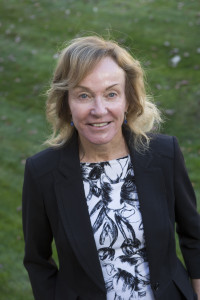
A Colorado State University anthropology professor served on a national task force that recently concluded in a sweeping report that addressing climate change requires more than the hard sciences — it requires altering the social institutions and cultural habits that cause it in the first place.
Kathleen Galvin, director of the Africa Center and director for educational programs in the School of Global Environmental Sustainability, was selected as one of only 11 members of the American Anthropological Association’s Global Climate Change Task Force, which met for about a year and a half before releasing its report last year. The association issued a statement based on the report Jan. 29.
“We’re not going to solve our environmental problems until we incorporate the social sciences, because it starts with people,” said Galvin, who led a subgroup charged with writing the report’s section on the drivers of climate change. “It’s not just about getting information into the hands of policy makers, it’s understanding the social and cultural dimensions of the causes and impacts of climate change. Why do we drive our SUVs?”
The findings
The statement recently issued by the association makes eight points, including the finding that climate change intensifies underlying problems like economic disparities, food/water insecurity and armed conflict. The impacts of climate change will be especially burdensome to already vulnerable populations, according to the statement. While the emphasis on fossil fuels and our culture of consumerism are largely to blame, it says, focusing solely on reducing carbon emissions will not be enough — and efforts will be needed at regional and local levels.
“Real solutions will require knowledge and insight from the social sciences and humanities, not only from the natural sciences,” the statement concludes. “Climate change is not a natural problem, it is a human problem.”
Galvin, whose research focuses primarily on biodiversity, conservation and human well-being in dryland areas of Africa and Mongolia, said she was honored to be chosen to serve on the task force.
“It was nice to work with so many peers who I knew by reputation but had never met,” she said.
“This task force, with members like Dr. Kathleen Galvin, are among our most experienced researchers,” said Ed Liebow, executive director of the association. “Their report frames the problem just right, and offers important anthropological insights to illuminate the ways that global climate change will intensify underlying problems, disproportionately burden the most vulnerable, and call out for locally and regionally crafted adaptations.”